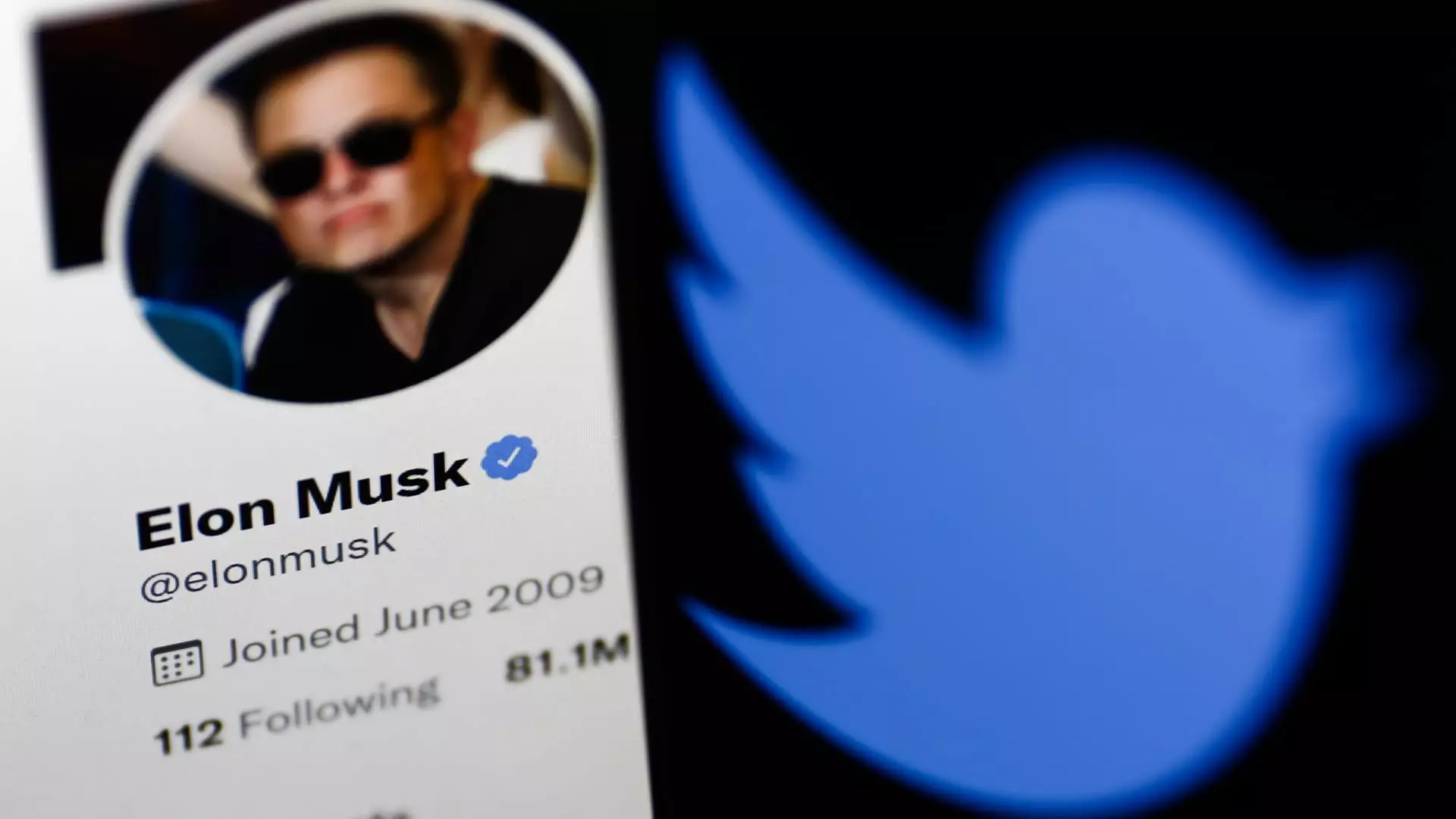Elon Musk, a name synonymous with bold ambitions and ambitious ventures, is entangled in a legal labyrinth that could tarnish his reputation amidst all his audacious achievements. Recently, a class-action lawsuit was allowed to progress in federal court, intending to hold him accountable for alleged securities fraud relating to his investment in Twitter, now rebranded as X. At the heart of this case, Rasella v. Musk, lies a serious accusation: that Musk’s deliberate failure to disclose his stock purchases misled investors, resulting in financial losses for many. It raises unsettling questions about accountability and transparency in a world where one man seemingly holds the strings to vast economic empires.
The Illusion of Influence
Musk’s legal team argues that the late-filed disclosures were due to a mere oversight rather than a calculated deception. However, a federal judge, Andrew L. Carter, has lent credence to the plaintiffs by asserting that Musk’s actions sent a “false pricing signal to the market.” Here we find a troubling irony; a figure known for revolutionizing industries has inadvertently—or perhaps deliberately—disrupted financial stability for many investors. The judge’s decision to allow the lawsuit to proceed speaks volumes about societal expectations of transparency, particularly from those who wield considerable influence. For Musk, a titan of industry, being in the crosshairs of such accusations challenges the very foundational principles that have enabled his ascension.
The Timing of Musk’s Tweets: A Calculated Gambit?
Adding further intrigue to the lawsuit is Musk’s tweet from March 26, 2022, indicating curiosity about buying another social media platform while he was silently amassing shares of Twitter. This timing was not merely incidental—it suggests a lack of earnestness that investors have come to expect from industry leaders. Judge Carter noted that such a tweet could be construed as misdirection, cleverly crafted to divert attention away from the burgeoning stake in Twitter. A lighthearted quip or a benign remark might have notable consequences in the realm of stock trading; in this case, it may have resulted in considerable monetary losses for investors who believed they acted on accurate information. The implications of such calculated communications are deeply disconcerting within the parameters of ethical business practices.
Shifting the Landscape of Investment Ethics
Musk’s trajectory could potentially alter the landscape of investment ethics. The Securities and Exchange Commission (SEC) has been no stranger to Musk, having already initiated a similar lawsuit concerning delayed disclosures surrounding his Twitter stock acquisitions. One must ponder, how can society expect responsible corporate governance when even the most prominent leaders may falter in their transparency? While Musk’s innovations in technology and space exploration are lauded, his troubled relationship with regulatory frameworks suggests a dissonance between his public persona and his behind-the-scenes operational choices.
Beyond Just Musk: The System’s Failures
The ramifications of this legal battle extend beyond the fortunes of a tech billionaire. It casts a spotlight on a system that often rewards people like Musk while simultaneously allowing them to slip through regulatory cracks. The legal framework for securities trading exists not just for protection against fraudulent behavior but to instill trust in the marketplace. Should that trust erode, the reverberations could resonate throughout the economic landscape, leading to greater skepticism toward influential figures and firms. This lawsuit isn’t merely a crusade against one individual; it signifies a critical examination of how wealth and power are intertwined in shaping market realities.
The Future of Governance in Business
As the case unfolds, the question remains whether the scrutiny applied to Musk might prompt a broader reconsideration of corporate governance practices in America. Will this ultimately be a catalyst for change, encouraging greater accountability among executives? In a sense, the outcome could redefine how the public perceives responsibility among corporate leaders, not just in technology but across all sectors. As more individuals and organizations utilize social platforms for decision-making, the conversations surrounding ethics in business will only intensify. The stakes couldn’t be higher as the world holds its breath, waiting to see if Musk emerges unscathed or if this lawsuit marks a turning point in the relationship between powerful figures and the ethical conduct expected of them.

Leave a Reply